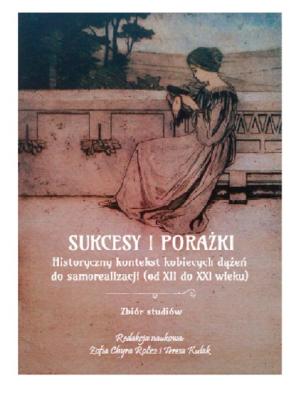Trzy pokolenia Polek: matka, córka i wnuczka w pracy i walce o wolną, niepodległą Polskę (sukcesy, porażki i klęski)
Streszczenie
Three generations of Polish women: a mother, daughter, and granddaughter worked and struggled for freedom and for independent Poland through successes, defeats, and disasters. Three characters of this paper – mother Iza Moszczeńska-Rzepecka – a journalist and women’s rights activist fighting for universal education; her daughter – Hanna Pohoska – a historian and educationalist, closed to the political circle of Józef Piłsudski, the wife of Warsaw deputy mayor and sister of colonel Jan Rzepecki, chief of the Office of Information and Propaganda in the Headquarters of the Home Army. She was active in the resistance movement under the German occupation during the World War II. Iza’s granddaughter (Hanna’s daughter) Ewa Pohoska – an ethnographer, was engaged in cultural life among young conspirators, fighting and studying at the same time, also an editor and publicist of the underground press and a poetess. They belonged to the Polish middle class, with their lives and tragic experiences shaped by the turbulent history of the Polish nation and – of course – by their activities in the period of fifty years: from the revolution of 1905, World War I and the struggle for independence, through the time to the Second Republic of the interwar period and World War II and later to the time of Stalin’s dictatorship and the Polish People’s Republic, which only Hanna Pohoska experienced. All three women: mother, daughter, and granddaughter were highly educated and continually broadened their knowledge. They were ambitious and hard-working and produced a big literary output. The imperative of working for the Polish nation dominated their attitude to life. There were – of course – differences in their attitudes and political choices, both during the time of the struggle for independence and in independent Poland (relations to Józef Piłsudski divided mother and daughter), but family links and respect for different opinions – when it did not concern fundamental matters – were typical of courageous Polish women from the intellectual circle. During World War II Iza Moszczeńska died of natural causes. The husband of Hanna – Jan Pohoski was executed by Palmiry by June 1940 by the Germans’ action to liquidate the elite of Polish society. Ewa Pohoska, a person strongly engaged in cultural underground activities, was imprisoned in Pawiak and was shot and killed with other prisoners in the ruins of Ghetto in February 1944. Her son Janek was only 19 years old when he went to fight and die in the Warsaw Uprising of 1944. After the war Hanna Pohoska – Polish Niobe (as she was named) worked at the Warsaw University, but during the Stalin time she could not publish or do unrestricted academic research. Her brother was in prison. She died suddenly in 1954.
Pobrania
Opublikowane
Licencja

Utwór dostępny jest na licencji Creative Commons Uznanie autorstwa – Użycie niekomercyjne 4.0 Międzynarodowe.





